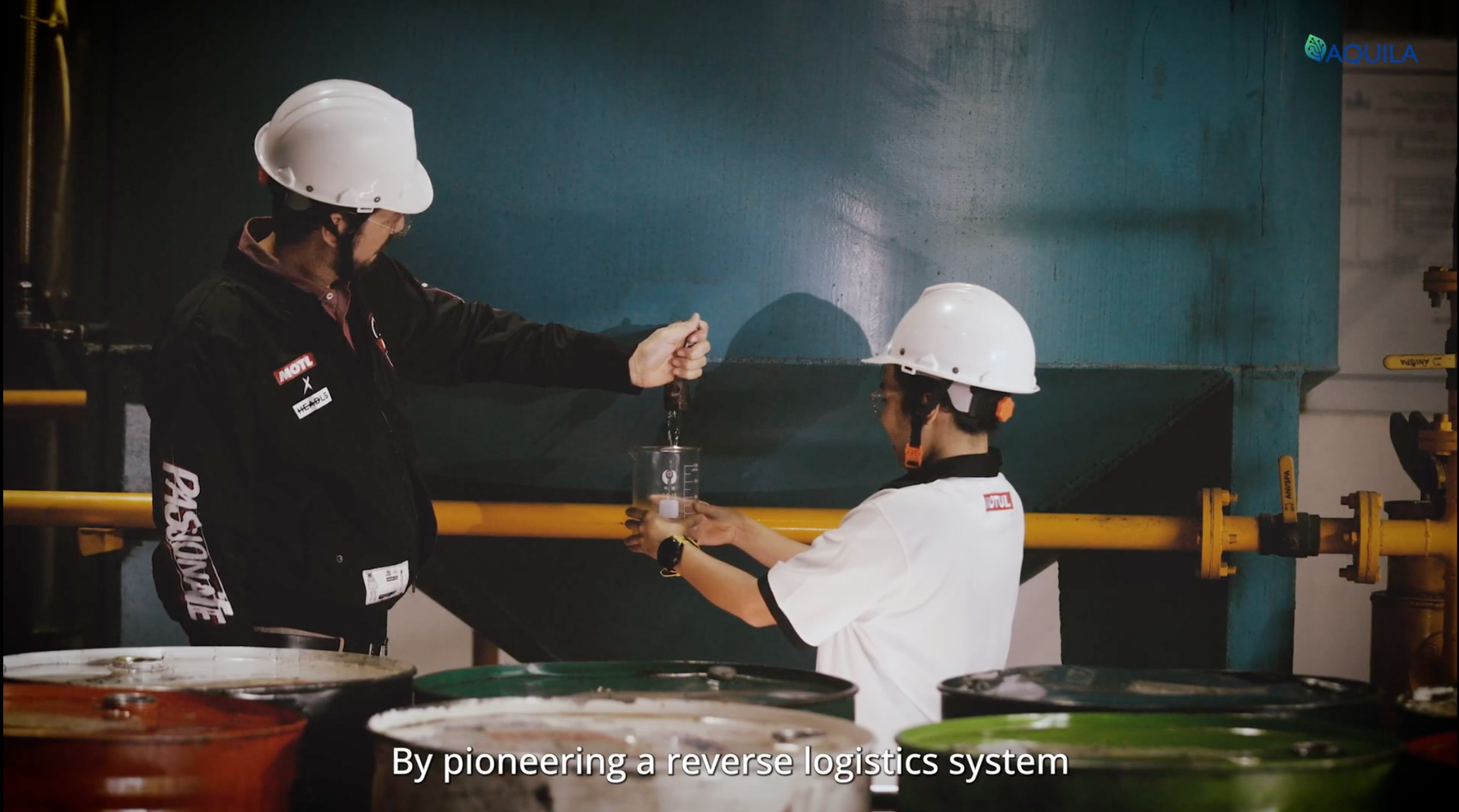
Motul, a leading lubricant distributor in Vietnam, was facing significant regulatory pressure under the Extended Producer Responsibility (EPR) framework. Without a structured recycling system in place, Motul risked incurring heavy fines (up to VND 8,568 per liter) for non-compliance. This regulatory gap also meant that the company was missing out on market opportunities to position itself as a sustainability leader in an increasingly eco-conscious industry.
The lubricant industry operates under strict environmental and safety standards, with stringent requirements for traceability, quality control, and hazardous waste management. In Vietnam, challenges such as unstructured supply chains for used engine oil, inconsistent product quality from informal collectors, and the need for certified recycling processes added complexity to Motul’s operations. These factors demanded not only a robust technological solution but also the formation of reliable partnerships and compliance with local regulations.
AQUILA partnered with Motul to address these challenges by first conducting a comprehensive pre-feasibility study. This study evaluated the technical and economic viability of setting up a reverse logistics and recycling system. Following this, a pilot project was executed, recycling 10,120 liters of used engine oil. The pilot assessed collection efficiency, recycling performance, and regulatory adherence using advanced distillation and filtration processes. Building on the pilot’s success, a detailed scale-up plan was developed targeting the recycling of 1.5 tons of used engine oil in 2025. This phased approach provided Motul with a turnkey, compliant solution to not only meet EPR obligations but also to capitalize on a growing market for recycled lubricants.
By establishing a formal recycling process, Motul can avoid hefty fines and meet EPR requirements, ensuring long-term sustainability.
The recycling initiative reinforces Motul’s commitment to the circular economy, promoting environmental stewardship and reducing waste.
The pilot demonstrated a viable process with clear potential for cost optimization across collection, transportation, and processing, laying the groundwork for profitable scale-up.
Adopting this integrated recycling model positions Motul as an industry innovator, strengthening its brand reputation and competitive advantage in a market increasingly focused on sustainability.
The phased approach—from pre-feasibility through pilot to scale-up—allowed Motul to fine-tune operational details, build necessary partnerships, and secure regulatory alignment. This strategic collaboration with AQUILA not only mitigates immediate compliance risks but also sets a replicable model for future expansion in Vietnam’s lubricant industry.